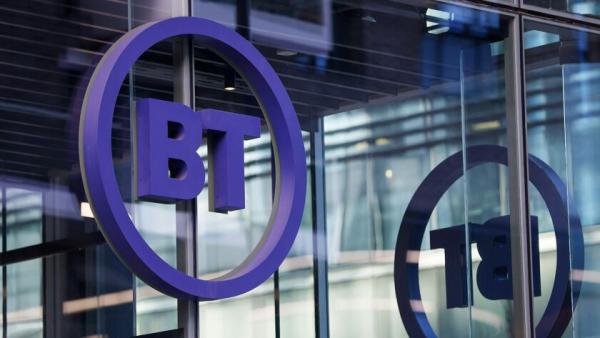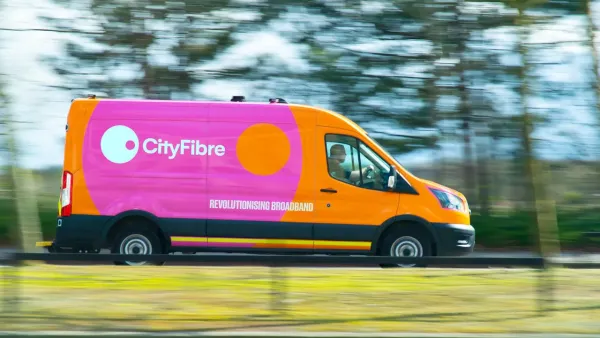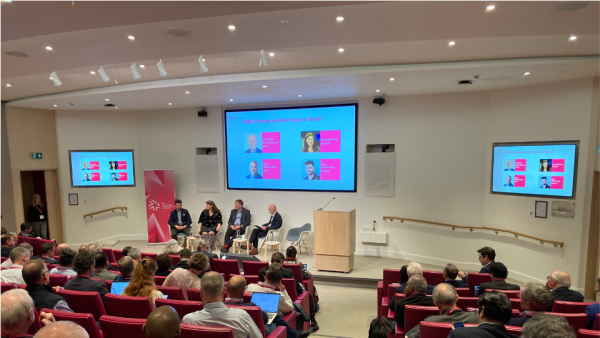
A series of Future Capability Papers, authored by the UKTIN Expert Working Groups, are soon to be published. UKTIN spoke to Dritan Kaleshi, UKTIN Lead For Future Telecoms Capability, to learn more.
UKTIN’s Expert Working Groups (EWGs) are publishing in-depth papers over the next six months. What will they cover?
The Expert Working Groups are the key component in the structure UKTIN has established to work with a critical mass of telecommunication industry experts. This structure has been deliberately created to coordinate the UK telecommunication systems ecosystem views on the future capabilities in the sector for the UK, and how to develop those. The EWG members were recruited in an open process, and they represent their own expert independent views. For the first round of sector papers we asked the EWGs for a review of the telecoms sub-sectors, to identify the existing capabilities and challenges from a UK perspective, and areas and pathways to develop future capabilities. However, the groups ended up researching and contributing far more broadly than that, which, of course, is an excellent outcome. The reports provide a very extensive historical representation of the development of the telecoms sector - and individual technologies and markets therein - over the past 30 years, something that hasn’t been written before, before representing an analysis of the state and proposing the EWG recommendations looking into the future for the UK. The perspectives of both industry and academia are covered, analysing the market conditions, regulatory space, skills, R&D capabilities and directions of travel, and more sub-technology specific topics for individual areas.
UKTIN is also publishing a series of market insight reports. How will they differ?
The market insights reports are quarterly to six monthly snapshots of the state of the telecoms systems market and activities in the UK, leveraging the capability discovery service developed by University of Bristol in UKTIN. In contrast, the expert working groups work on a long-term view of 2025-2035, looking to inform strategic objectives for the UK based on predictions for the next five to ten years. Their focus is really on the direction of travel for the specific sub-sectors of the telecommunication systems, and how and where the UK should grow its capabilities to address the realities of 2035.
Each group is made up of experts from industry and academia. What was the approach for the papers?
The reports are substantial pieces of work based on individual expert contributions and opinions. The engagement and commitment across all nine expert working groups has been outstanding - and we, at UKTIN, are grateful for the response and engagement we have seen. It must be said that the papers do not represent the opinions of the UK government or any private company.
The expert working groups operate independently, and UKTIN’s convening role is delivered through very significant technical secretariat support, leveraging the expertise and experience here at UKTIN from Digital Catapult, University of Bristol, Satellite Applications Catapult and Compound Semiconductor Applications Catapult. Part of the EWGs’ workflow is also establishing a consultative process with the community - workshops and roundtables to engage interactively with the wider UK telecom ecosystem around the EWG findings. This has been a particularly positive engagement.
The papers in each EWG go through agreement of scope, individual direct contributions, peer member review of the contributions, and - the stage many groups are in now - a final version is created providing balanced and agreed views and recommendations of the EWG members. Part of this process for each EWG is also UKTIN EWG consultation events, whether round-table or larger 100-person conferences, where EWGs will present to the wider ecosystem their findings and consult on those. The Wireless Networking Group, for example, held an event to test-run some of their findings with inputs helping to refine later drafts; and there was a specific - and very successful - UKTIN event on AI for telecommunications held on 1st February - and these will continue for the other EWGs.
Who will the papers be of value to?
The community, and for that reason, the reports must represent their views. We do not want these reports to sit behind closed doors! The nature and very purpose of UKTIN is to create a publicly visible consultation process whereby the UK telecommunication ecosystem finds themselves represented well.
Crucially, UKTIN is an organisation that takes a sectoral view of the telecommunication systems in the UK; this is also reflected in the audience. The reports will be useful to a range of sub-sectors: cloud networking, network operators, and technology providers including wireless, cellular and optical communications, vendors and system integrators. The corresponding academic community and innovation organisations, exemplified by Digital Catapult, will also learn from these reports, along with many others. Then, of course, there is the UK Government itself, which is one of the key stakeholders in this space: telecommunication systems are one of its five strategic priority science and technology areas.
So, what is next? The EWGs will be producing a second paper next year. How will they build on the first papers?
A key aim of UKTIN is to address the fragmentation of the telecommunication systems sector in the UK ecosystem. We do that by convening the EWGs, and the Industry, Academic and Future Capabilities Strategic Groups. The individual EWG papers, and their initial recommendations in the first papers, will be a key input to the strategic groups. They will synthesise these recommendations, still representing an ecosystem view, into a sectoral set of recommendations for the future development of telecommunication system capabilities in the UK. This work has started as the EWGs are completing their first reports - which will be progressively published over the next six to eight weeks.
More specifically for EWGs, the second paper should be completed by the end of 2024/Spring 2025. The EWGs and UKTIN are discussing the next stage of this work, with the aim of identifying a few topics, including specific R&D future capability development in the UK for telecommunications, and a potential roadmap for that.
These second papers will build a five to ten-year roadmap, with work beginning in April and continuing through most of 2024, seeking to align with industry, academic and government initiatives during that time. At the moment, the groups are deciding the focus of the second paper, starting with a very broad approach and eventually whittling this down to two or three topics within each telecoms systems subsector.
The expected successful completion of the first round of papers and the starting of the work of the strategic Future Capabilities, Academic and Industry diversification working groups - and we will talk more on them shortly - marks a particularly significant milestone for UKTIN. In these we have achieved the goal of setting up and operating an open, impartial, representative, expert and independent standing structure for telecommunication systems future capability consultation in the UK. I want to thank UKTIN partners in Future Capability, the founders of UKTIN that put this vision in the proposal, the team that has supported the EWGs - and, in particular and more than anybody else, the Chairs and the members of the EWGs, those people that have volunteered their time and expertise so selflessly, and who are making all this possible.









